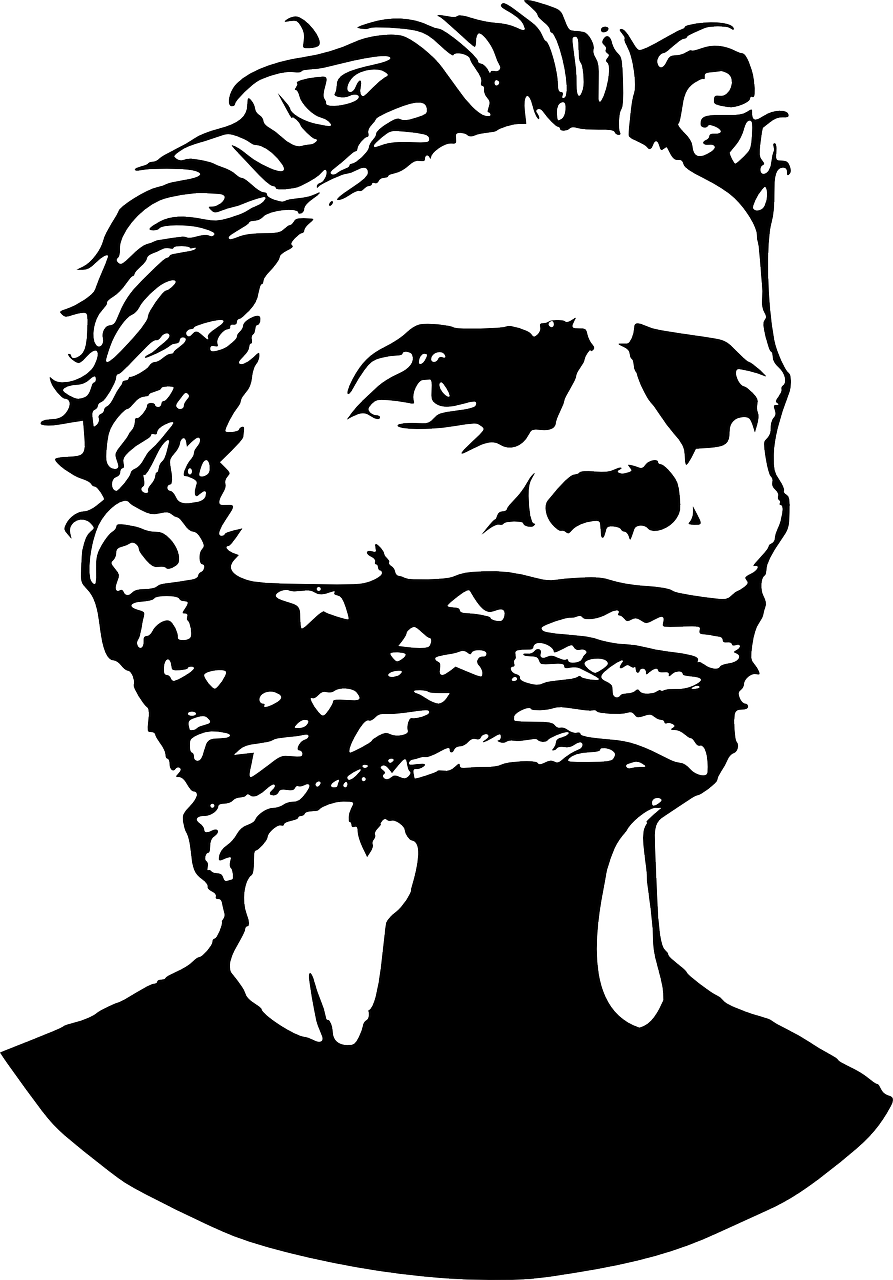For many people, there’s an uneasy feeling in the air right now due to a large resurgence in censorship. Banning books is by no means a new tactic, and attempting to control people to think ‘the right things’ and not ‘the wrong things’, can be seen throughout history and the world.
History of Book Burning and Banning
In 213 B.C., as a way of consolidating power in his new empire, Chinese emperor Qin Shi Huang ordered a huge bonfire of books. According to historian Lois Mai Chan, “His basic objective was not so much to wipe out these schools of thought completely, as to place them under governmental control.” Works of philosophy, history and poetry were targeted, so that no one would be able to compare the new emperor to more triumphant past rulers. (Boissoneault, 2017).
Incidences of burning books have occurred all over the world, and for much of history. From Ancient Roman times, when in 48 B.C. Caesar razed the Library of Alexandria, through to WWII, when Nazi’s made a regular practice of stealing and destroying works of art and literature. It is unknown exactly how many books were lost during Hitler’s reign, however according to a PBS report “On May 10, 1933, university students in 34 university towns across Germany burned over 25,000 books. The works of Jewish authors like Albert Einstein and Sigmund Freud went up in flames alongside blacklisted American authors such as Ernest Hemingway and Helen Keller, while students gave the Nazi salute.” Just recently, in February 2022, a Tennessee pastor encouraged his congregation to burn books from the Harry Potter and Twilight series, as well as other supposed occult materials, in order to fight “demonic influences”.
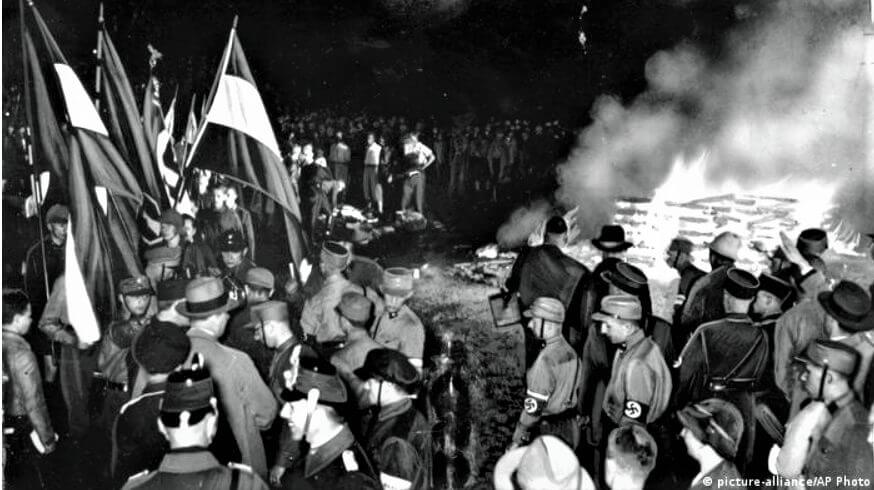
Throughout history and the world, books deemed inappropriate by government officials, organizations, and religions, would be removed from libraries, school curriculums and people’s homes, if they were found to be “offensive”. As long as it suited the needs of the dominating ideology of the time, the definition of “offensive” could be anything ranging from; sexual, racial, sacrilegious, immoral, intemperate, free thinking, science or political bias themes.
Current Day Book Banning on the Rise
In 2010, in the small town of Stockton, Missouri, there was an issue over Sherman Alexie’s book The Absolutely True Diary of a Part-Time Indian, which told the story of a 14-year-old poverty-stricken Native American living on a desolate reservation. Parent and lawyer Mike Holzknecht shared with BBC News “The book is just chock full of vulgarity, profanity, obscenity and sexual explicitness involving minors. People around here, where it’s pretty rural and conservative, they will go a long way, but this book was so far over the edge. It doesn’t belong in a school.” Seeing that this was over a decade ago, one would assume in 2022, during the age of international Truth and Reconciliation regarding Indigenous Persons, that things would now be different.
In April 2022, Durham District School Board (DDSB) in Ontario, banned The Great Bear, under the claim that “(t)his book does harm to Indigenous students.” In a interview with The National Post, Indigenous author, David A. Robertson, has called the claim “outrageous,” saying all of his books were “written to empower Indigenous students.” The district’s director of education, Norah Marsh, stated that the school board has a policy that takes “anti-colonial approaches… to actively identify, prevent and eliminate anti-Indigenous racism”, and that there were complaints about the book which came from Indigenous families who wanted to make sure their children weren’t being negatively impacted and caused harm. The district is currently undergoing a review of the novel- by what criteria- is unknown.
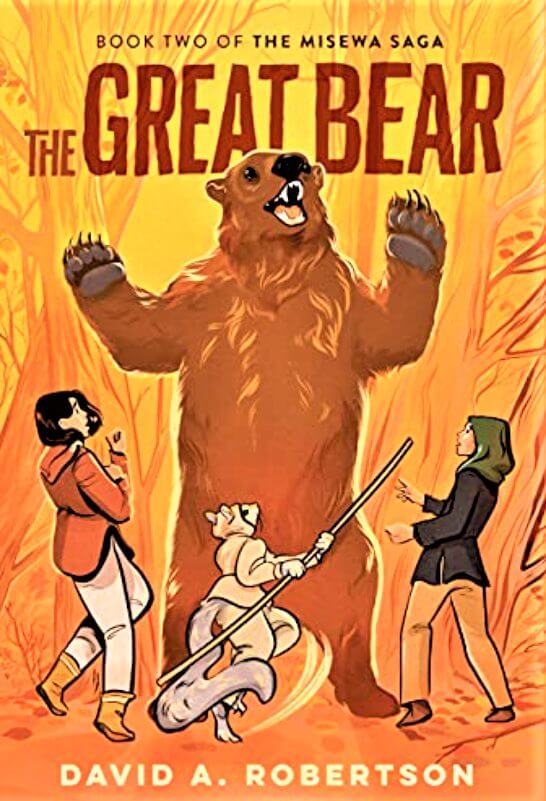
Book banning is an inflammed topic at the moment, with an unprecedented amount of books currently being challenged and banned. PEN America, a free speech advocacy group, reported that since January 2021, 174 education-focused legislative bills were introduced in 40 states;162 of those bills are aimed at grades 1 to 12.
One Republican state Senator leading the charge is Rob Standridge, who has put into motion two bills. The first bill is aimed at post secondary education in Oklahoma. Universities and colleges would be prevented to allow students to take courses “addressing any form of gender, sexual, or racial diversity, equality, or inclusion curriculum,” that are not part of the requirements for their studies. The second bill is to support parents who have children in Oklahoma public schools. Standridge enacted a $10,000/per day bounty that could be collected by parents, when libraries do not remove challenged books.
Efforts to Protect Books and Freedom of Expression
In 2021, al-Qaida Islamists invaded Mali and Timbuktu. Part of their alleged agenda, was to acquire and destroy priceless historical manuscripts. The devastation could’ve been much worse if not for people like Abdel Kader Haidara, who took a huge risk to his personal safety in order to guard and protect the medieval works. Haidara, and others managed to smuggle out 350,000 manuscripts, showing not only how much value the books have, but as well, the incredible measures ordinary people are willing to take in order to protect them. In the long history of books being ravished by would-be arsonists, it’s an amazing victory worth celebrating, even if only a rare one at that.(Boissoneault, 2017).
Trip Adler, CEO Of Scribd, is on a “mission to change the way the world reads”. Scribd is an audiobook and ebook subscription platform which provides access to a large digital library that offers a diverse range of voices across many mediums. In response to the increase of books being prohibited, Adler and his team are allowing free access to their site (with some restrictions), so people can read and learn about the banned books for themselves. Additionally, Adler partnered with Ryan Holiday, New York Times bestselling author and owner of The Painted Porch Bookshop, to bring their brand new “Banned Bookmobile” to Texas, and offer physical copies of banned books to readers for free. “America has a lot of problems but people reading books is not one of them. I’m appalled by this campaign to ban or remove books from school libraries and as a bookseller, it’s my obligation to do something about it,” Holiday said as reported by Little Things. He continue to share, “I’m really excited that Scribd has helped make these books accessible not just here in Bastrop, Texas, but across the country.”
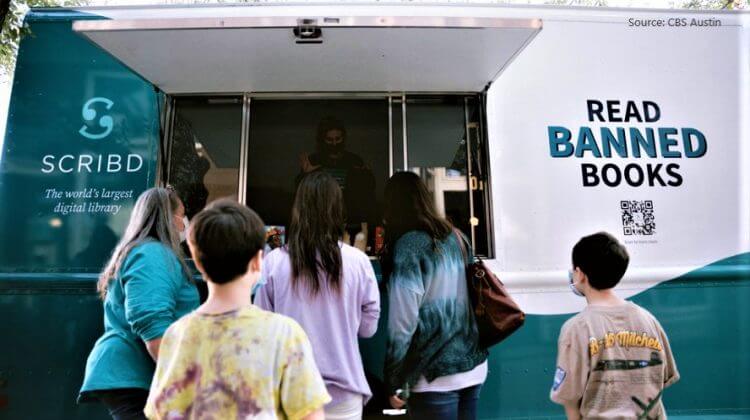
Quite often, complex issues, such as this one, are presented by the media as a one side (left) verses the other (right). However, current day life is much more nuanced, complicated and ironic than that.
Durham school board pulled a book written by an award winning Indigenous author meant to empower First Nations youth, because they received concerns from Indigenous parents about their children being triggered by the book.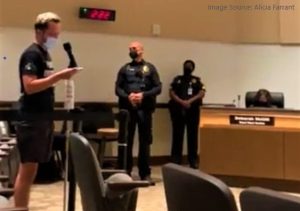
A concerned parent was removed by security from an Orange County School board meeting for using “inappropriate language” when he read a sexuallly explicit scene from a book found in their school’s own library.
The New York Public Library and The Brooklyn Public Library are offering free banned ebooks, while at the same time the Library Freedom Project is demanding Hoopla remove books on behalf of librarians who found them offensive and ‘hate’ books.
Hoopla CEO Jeff responded by saying “Due to the hateful nature of these specific titles, I have no regrets about having our team remove them from hoopla.” Then he goes on to say “I must acknowledge that this situation highlights a complex issue that Libraries have always faced in curating their collections — avoiding a culture of censorship.”
Freedom of speech and expression are very important, and yet does that mean just allowing for open ‘hate’ speech? It’s completely reasonable for parents to want input into what their children are learning, but is it an overreach when they want the whole curriculum changed for everyone else? Librarians and school boards are clearly passionate about their work, and yet should each individual association be able to decide what books are allowed and which ones aren’t? By what criteria and standards do we measure offence?
“I see offence as the collateral damage of free speech. I hate the thought of a person’s ideas being modified or even hushed because someone somewhere might not like to hear them. Outside actually breaking the law or causing someone physical harm ‘hurting someone’s feelings’ is almost impossible to objectively quantify.” – Ricky Gervais
(adsbygoogle = window.adsbygoogle || []).push({});
The post Freedom of Speech & Book Banning in 2022 first appeared on Good e-Reader.

